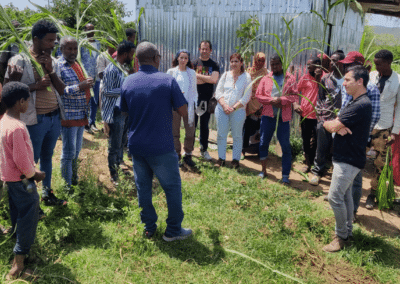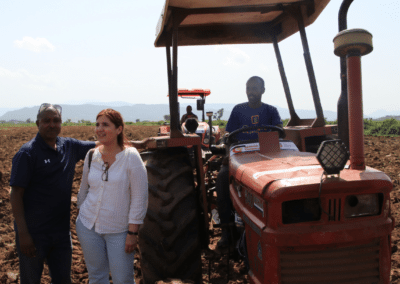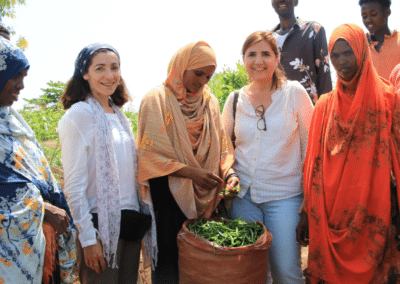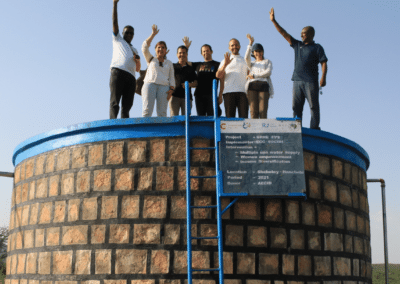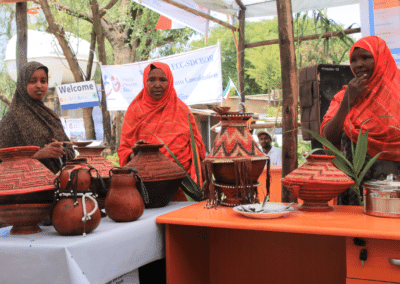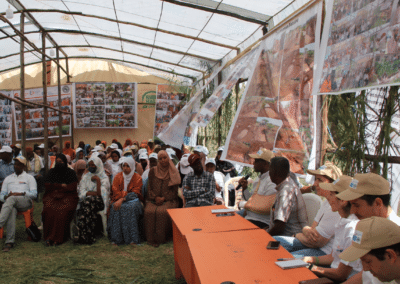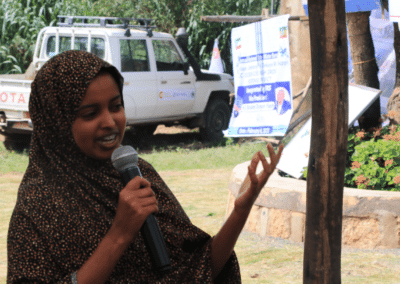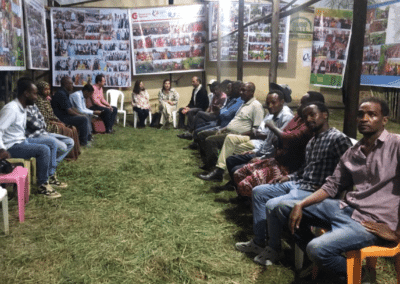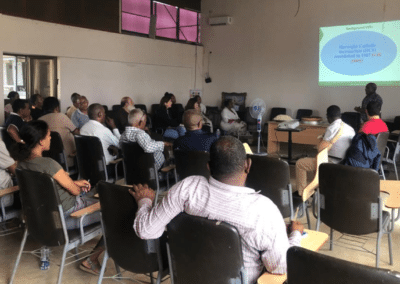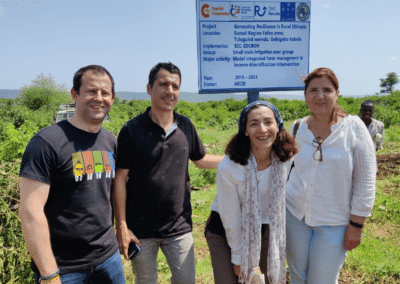From June 14 to 19, Macarena Cotelo, Project Director, along with Gema Talaván and Federico Crespo, Project Technicians from the Social Promotion Foundation, had the opportunity to witness first-hand the transformative power of our Convenio to promote rural resilience in Ethiopia. This agreement, executed in collaboration with the NGO Rescate and financed by the Spanish Agency for International Development Cooperario (AECID), has generated a positive impact on numerous communities in the Somali region.
Their trip to the field marked the closing of the Convenio’s activities and laid the foundations to continue working in the country through a new Convenio that began on April 2023. During this visit, the team was accompanied by Gerard Poch, our head of mission in Ethiopia, and staff from our local partners ECC-SDCOH and HAVOYOCO.
The agenda began on June 15 in Addis Ababa, the capital, where the General Coordinator of the Technical Cooperation Office of Ethiopia, Mario Fanjul Benítez, received the Foundation team and a representative of the NGO Rescate. During this meeting, the current context of the country was analyzed and the achievements obtained until now through the joint work of both NGOs were discussed, as well as strategies to strengthen the implementation of future activities.
Afterwards, they traveled to the ECC-SDCOH headquarters in Dire Dawa, where they had the opportunity to meet the management team and learn more about their work in development and humanitarian aid.
From June 16 to 18, they visited and participated in various key events, where they heard multiple testimonies from community members, highlighting personal and collective stories of empowerment, economic growth and sustainable development that have transformed lives and opened new opportunities for the future.
In particular, the visits to the Gedigebo kebeles in the Tuluguleed woreda, and to Hancebi and Gulfa in South Jijiga, on June 16 and 18, made it possible to demonstrate the positive impact of the interaction between the various activities implemented in the Convenio. These activities included improving water access and management, training in agricultural and natural resource management techniques, creating nurseries, and establishing cooperatives for effective product management and income generation.
Additionally, the construction of drinking water wells has improved community well-being and the quality of life of women and girls by eliminating the need to travel long distances to obtain water.
The highlight of the trip was the holding of a forum in Jijiga on June 17, which brought together 150 participants and was attended by a member of the Somali Regional Parliament, as well as local government representatives, with special relevance from the Office of the Women and Children, and various sectors, including agriculture and natural resource management and finance. This significant government participation underlined the recognition of the activities developed within the framework of the Convenio, as well as the firm commitment to support and promote future initiatives for the benefit of society.
During these days, progress has also been made evident in the role of women within their communities, both socially and economically, which has contributed significantly to their empowerment.
Inspiring examples like that of Asha, a widowed mother of seven, demonstrated the resilience of Somali women and their ability to excel in a culturally challenging context. Thanks to her determination and skill development, Asha has become a prominent vegetable producer and has started the sale of fattening animals, becoming a role model in Gedigebo.
In addition, a high female participation has been observed in the events held in the framework of the visit, such as that of the members of one of the girls’ clubs of a local school in the Jijiga forum. These young women have been involved for the last two years in awareness campaigns focused on reducing female genital mutilation, preventing child marriage and combating school dropouts, reflecting the long-term commitment on the part of the community in promoting the rights of women and girls.
These joint efforts have further strengthened the role of women in their communities, generating positive impacts both individually and collectively. In the Hanchebi and Gulfa kebeles, women have established a store that provides essential commodities, improving accessibility to essential supplies for the community. Likewise, in Goden kebele, Tuluguleed woreda, a cereal milling cooperative has been created exclusively for 35 women. This initiative has not only generated new income but has also avoided the need to travel to grind cereals, promoting the economic autonomy of women in the region.
In addition to these achievements, the fundamental role of Samsa, the local gender expert of the local partner ECC-SDCOH, who has promoted the empowerment of women and has facilitated their active participation in the workshops, was also highlighted.
Finally, on June 18, the holding of a workshop to share results at the ECC-SDCOH headquarters in Jijiga, where the conclusions, weaknesses and strengths of the work carried out were summarized, marked an excellent close to this enriching journey.






